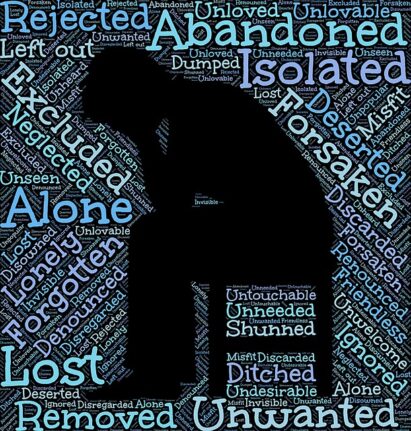“And you will know the truth, and the truth will set you free.” (John 8:32, ESV).
The church I grew up in claims to be one of the few “with a revelation of the truth.” There were many comments continually about other churches “not having the truth,” and after I married, my husband and I taught our children that other groups “don’t have the whole truth.”
Never did I dream just how unwelcome the truth would be in such an environment. Speaking anything against a preacher was automatically wrong–no matter how truthful. Speaking a firm truth to a preacher was also damning. This was normal, as far as I knew…after all, I came in as a newborn baby and it was my father who was the preacher.
Then I grew up. Because preaching was such a lofty position–right up there next to God, if a preacher was “caught in sin” of a sexual nature, he would lose the right to be a preacher permanently. God would forgive, but he could no longer be used in that way.
This was a scary setup. Anyone who dared suggest any impropriety against a preacher was accused of “trying to ruin his ministry.” So, the culture bred silence. The few who did speak up were cast out of churches, accused of rebellion and lying, and treated as dangerous vipers. People became afraid to speak up.
Pastoral positions came with unquestioning authority, and corruption festered. People were taught to have a hero worship for pastors. It was not uncommon to see congregants kneeling before a pastor, shining his shoes. They pinched and scrimped to buy him lavish gifts–a crocodile Bible case or a $1,000 pair of shoes. I saw people share their food stamps and commodities with their pastor in an attempt to “tithe.” I saw them buy a sofa for one pastor’s Christmas, and present it in front of the congregation.
I dreaded Christmas when I was a little girl and my whole family were presented with gifts. We sat at the altar and opened them in front of everyone and I didn’t know why it made me feel so bad. I was just a kid trying to be a kid, but it’s hard to be “one of the kids” when you’re the only one getting a present you have to open in front of others who have none.
It was within this atmosphere that I began to notice that truth really wasn’t welcome.
The first case I remember was in Missouri somewhere. A preacher was arrested in a rest area for propositioning an undercover policeman. He claimed innocence. He said it was a set up. Then he said he didn’t realize what he said to the policeman was a proposition. It went to court with all of his preacher friends backing him and supporting his side of the story. He was found guilty. Still, he had the support of his preacher friends, who utterly defended his innocence, in spite of the court decision. Was he guilty? Who knows? The point is, he sure looked to be, and yet, even in the face of a court decision, he was not removed from preaching, and continued fully supported by his colleagues.
The truth was not welcome.
Another case occurred in New Mexico. It didn’t involve the courts. It involved a female in the church. This lady was historically upright and loyal, very dedicated to the church. The new pastor took advantage of that, making sexual advances to her. Confused and hurt, she contacted her former pastor for advice. He took the matter to the “board of elders” over the church–a group of three preachers chosen by the pastor to provide oversight and accountability. They performed an “investigation” where they listened to the pastor’s story but never interviewed the lady. They decided he’d been falsely accused. The former pastor was livid. He knew this lady, and she was not one to make things up. Again, truth was not welcome.
Then it happened to my friend.
She was a pastor’s wife. She’d been dealing with the domestic abuse for years. She shared with me that she’d gone to preachers, who’d “counseled,” but little changed. In some respects, it grew worse as time went on. It wasn’t just my friend who was suffering, several kids were involved. Finally, some frightening things took place and she shared how she had finally felt “release” to leave. The local women’s shelter carefully helped her plan for safe departure.
Once she and her children were safe with family in another state, she called to let him know. She said she told him if he’d see a professional counselor, then she’d talk to him again. He refused.
She saw a professional counselor for the first time herself, who, upon hearing the details, called the child abuse hotline to report what he’d done to the kids. An investigation was opened. She showed me the order of protection from the courts.
The response was an email, forwarded to a list of preachers by one of his “board of elders.” In it, the verse “bring not an accusation against an elder except by two or three witnesses” was used. It was a request to keep the matter “in the church” and let the “board of elders” decide innocence or guilt.
Domestic abuse doesn’t have witnesses. That’s how it thrives–fear and silence. I couldn’t believe this was going down again!
Needless to say, the matter went on to the courts. In the end, he lost custody of his children and ended up with limited supervised contact. But did this mean anything in regards to his “ministry?” No.
His board of elders refused to see the documentation, only looking at what he chose to show them, and believing him without wavering. Today he is still preaching within that group, bragging about the financial support he gets and the places he preaches. She deals with this frustration even now, years later. No one ever contacted her to hear her side.
Truth was not welcome.
When I left the cult myself, my dad asked me what I could possibly be seeking. “You already have all the truth.”
Really?
What I saw was a lot of propaganda and precious little appreciation for the truth that was tangibly right in front of their faces. Their belief in a mystical “truth” but their blindness to real truth turned me away.
No, thank you! I’ll go where speaking the truth is not referred to as “sin”.
********
Shop at our Amazon store! As an Amazon Influencer, this website earns from qualifying purchases.




